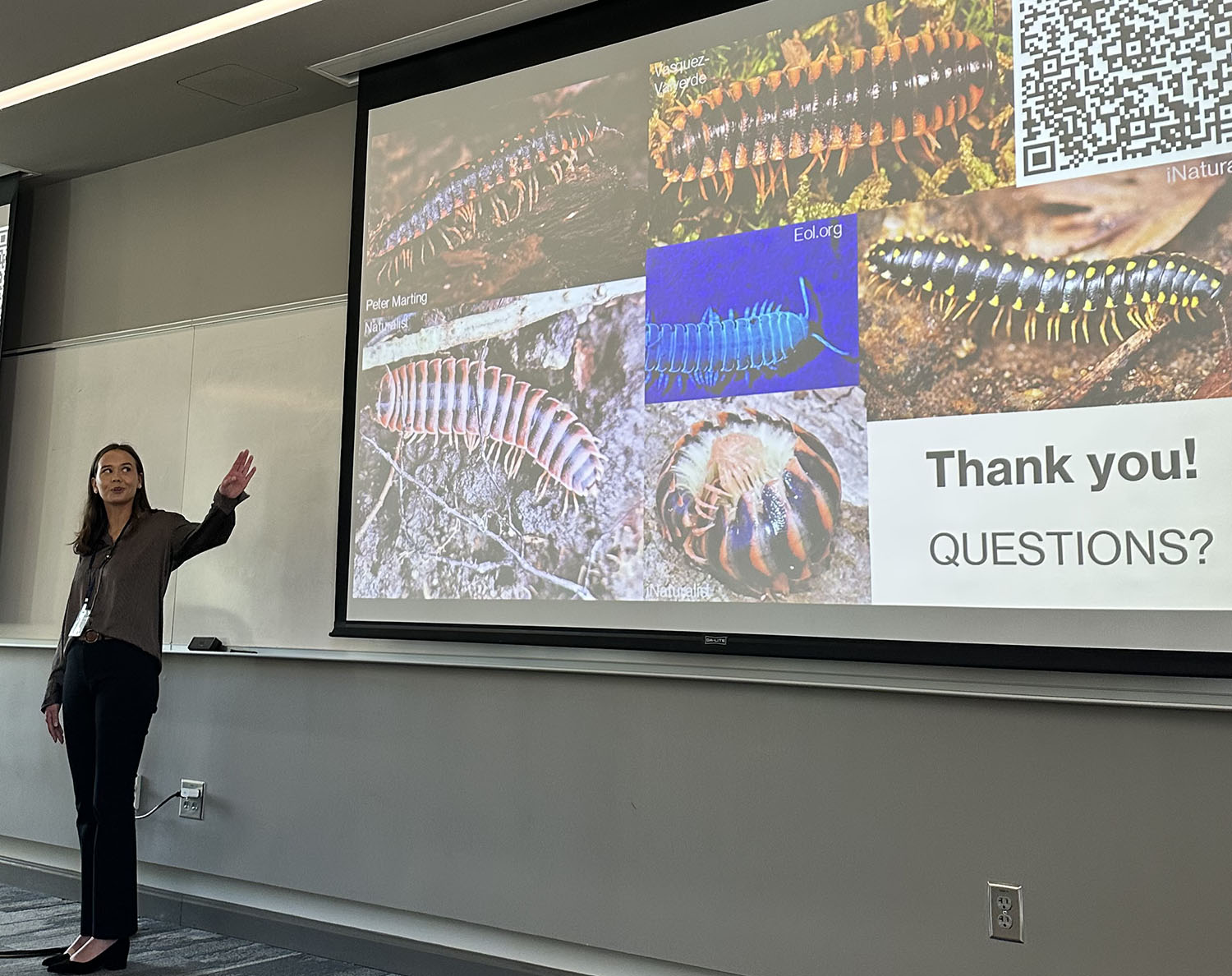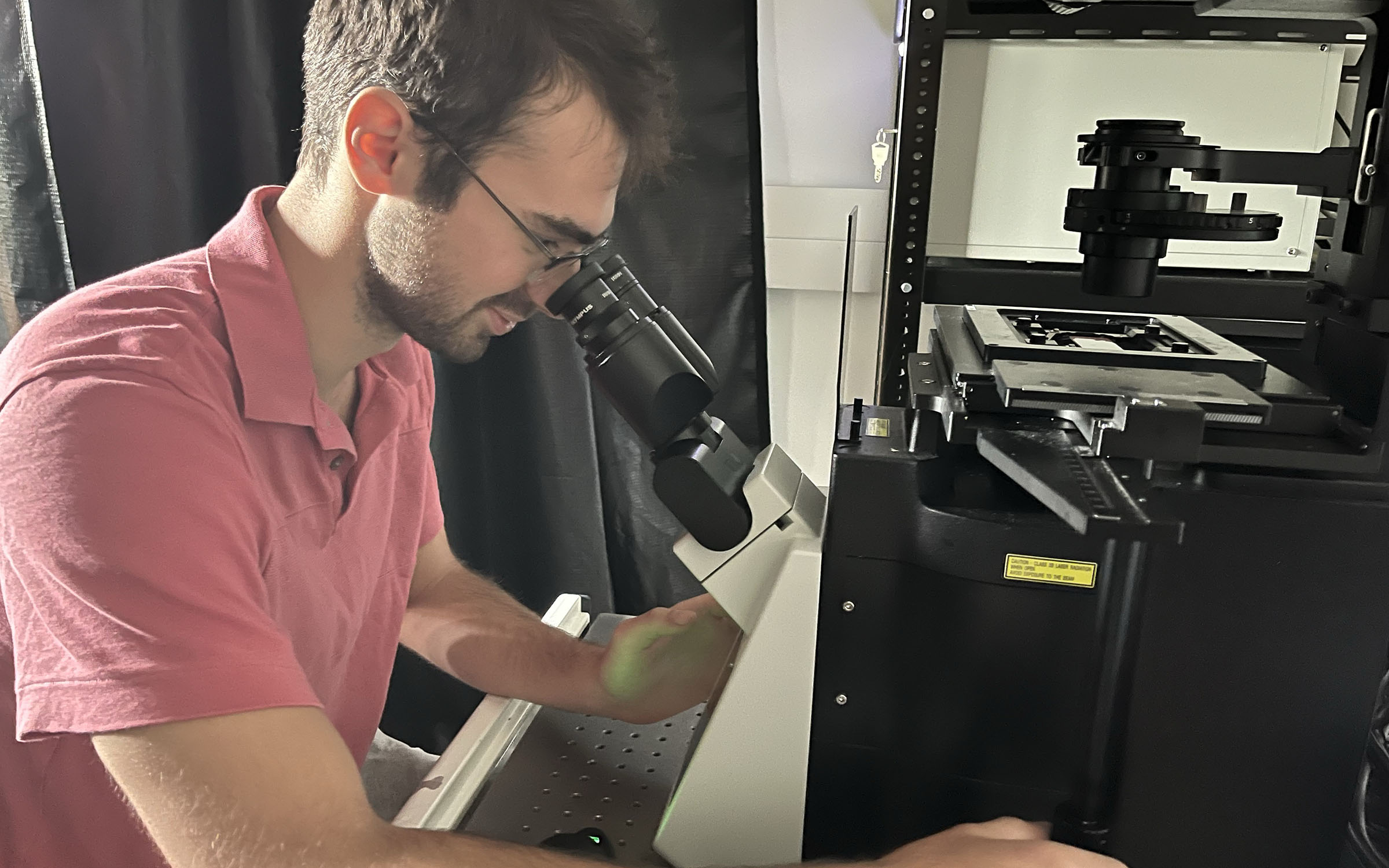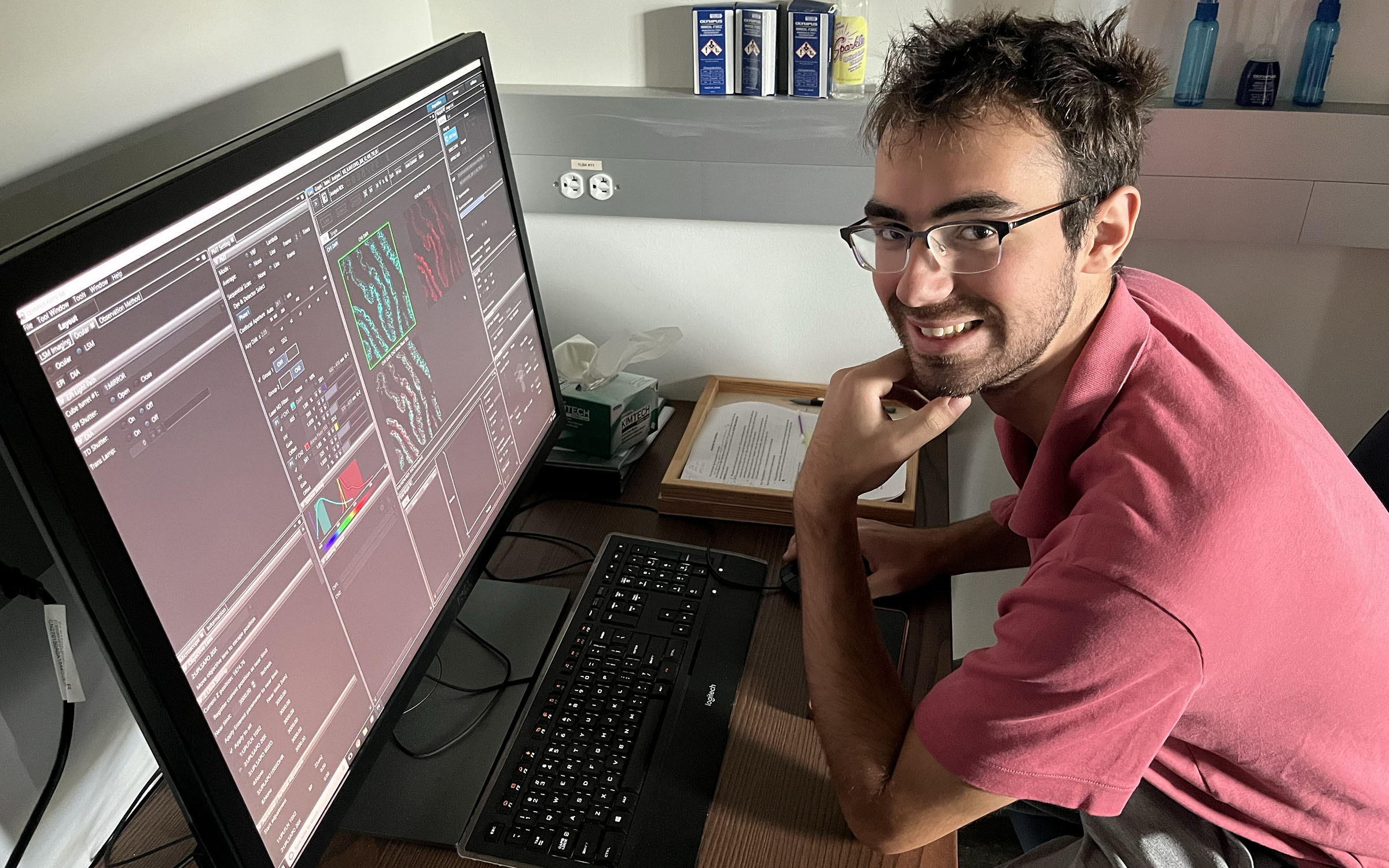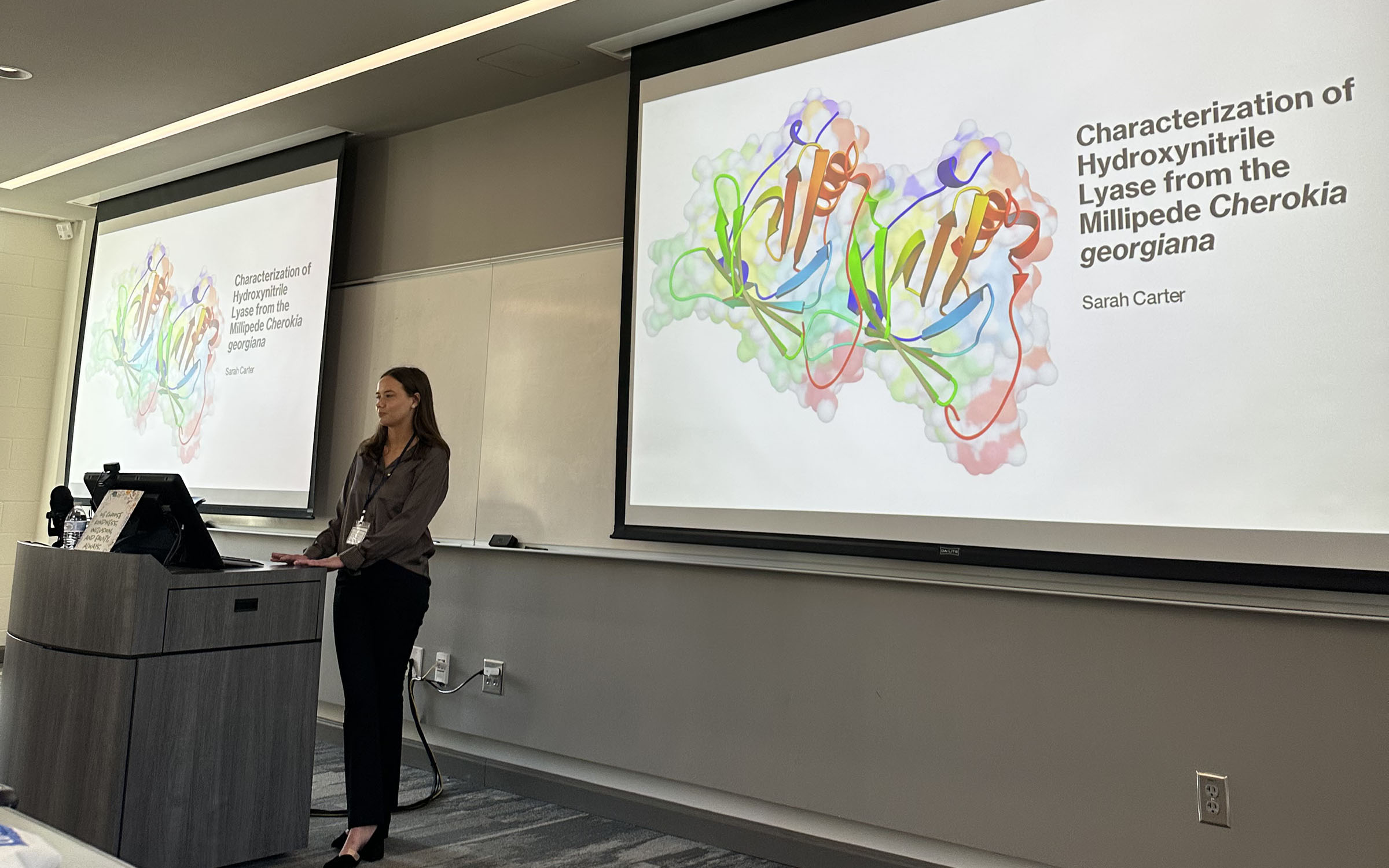Biology undergrads present on lizards, millipedes and more at prestigious statewide research conference

By Ian Wesselhoff
T he MURACE program at Georgia College & State University awarded seven biology faculty-student pairings $5,000 each to facilitate undergraduate research over this past summer. After a full summer’s worth of work, the students presented their research projects Nov. 8 at the Georgia Undergraduate Research Conference in Oxford, Georgia, to an audience of students, faculty and experts from across the state.
The grant money was originally meant to support just two faculty mentors and their students, but Dr. Kevin Bucholtz, associate provost for student engagement and academic excellence, more than tripled that budget: “Because I know the experiences are so valuable to our students,” Bucholtz said.
“They’re getting a graduate school experience at the undergraduate level,” Bucholtz said. “It’s student-focused, it’s engaging our students, it’s high-impact practices. It’s preparing them for success in their careers. It’s what we do and it’s what we are nationally recognized for.”
The summer research program is an opportunity to provide students with research experiences that will make them competitive candidates for graduate school or other competitive research opportunities. Each student worked one-on-one with a faculty mentor in the lab or in the field to perform hands-on research.
“The funding over the summer is a tremendous boost for the students,” said Dr. Arnab Sengupta, assistant professor of biology and faculty mentor. “It literally changes their career trajectories in many ways … Having some hands-on experience really catapults you to that position.”
The MURACE funding paid for students to stay on campus over the summer without needing an extra job, allowing them to devote their time and energy into their projects.
“I couldn’t imagine holding another part-time or full-time job whilst also being in the lab. I honestly don’t think it would have been possible,” said Henry Schneider, a senior biology major who spent his summer studying the hormones that cause reproductive changes in eastern fence lizards.
While students can also engage in mentored research during the academic year, having dedicated full-time research hours over the summer provides a different level of intensity. Over a single summer, with 40 hours a week for eight weeks, students can complete just as many research hours as they would over three years of researching during their semesters.
Sarah Carter, a junior biology major, was unsure about how much she would like the lab setting ahead of her project, which focused on an enzyme that helps millipedes secrete hydrogen cyanide as a defense mechanism. But over the course of the summer, with ample time to work through obstacles and learn from mistakes, her mentor Sengupta saw her independence grow significantly.

“After I really got to doing stuff by myself, I was like, ‘Oh, this is actually cool. I do enjoy this,’ Carter said. “It’s less stressful now that I know what I’m doing.”
By the end of the summer, Carter had developed an interest in pursuing a Ph.D. and further research.
“This is definitely the most significant part of my college experience,” Carter said. “I have so much experience under my belt to apply for grad schools and maybe even Ph.D.s, and a lot of other students who are competing for spots might not have that experience. I definitely think that’ll help me a lot in the long run.”
An addition to GURC, Carter will present her research at the American Society for Biochemistry and Molecular Biology in Washington D.C. in March.
Nearly two-thirds of Georgia College’s 2025 graduates participated in mentored undergraduate research during their time on campus – some as early as their freshman year. To Dr. Matt Milnes, associate professor of biology, mentoring undergraduate research is something that comes with the job at GCSU.
“If I worked at a larger Ph.D.-granting institution, my Ph.D. students and postdocs would be doing most of the lab work, and I’d be in my office writing grants all day and probably do very little teaching. If I was at an even smaller school that didn’t have the resources to support undergraduate research, then I would be spending most of my time in the classroom just talking about research but not having the ability to do it,” Milnes said. “This is like my happy medium … having the material support and having the financial support during the summer is great.”
Header Images: Biology majors Henry Schneider, Sarah Carter and Sarah Conner (pink blazer) presented their research at the Georgia Undergraduate Research Conference at Oxford College at Emory University Nov. 7 and 8, 2025. Photos by Arnab Sengupta and Matt Milnes.


